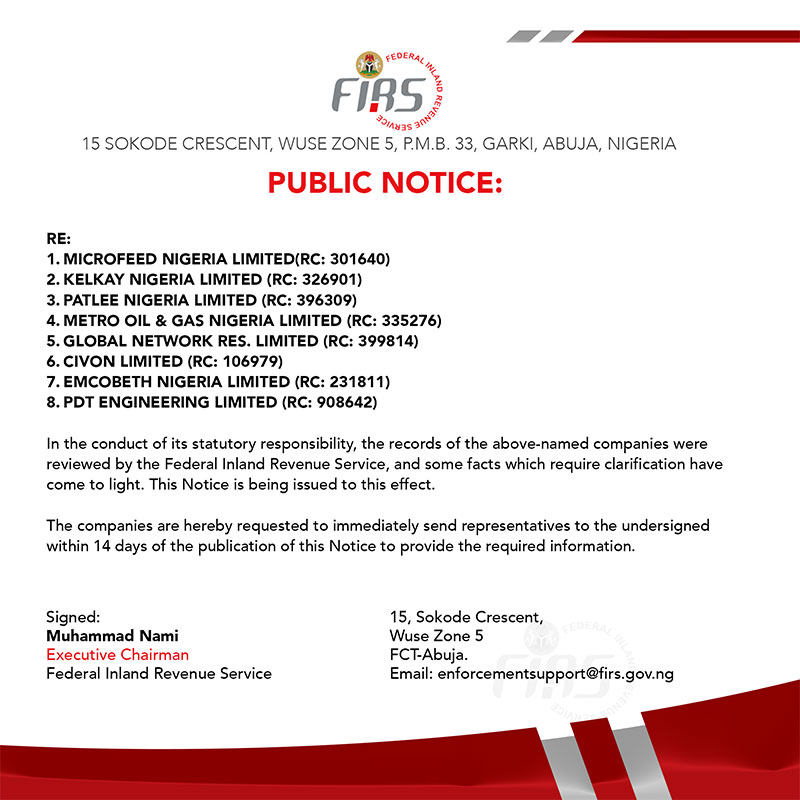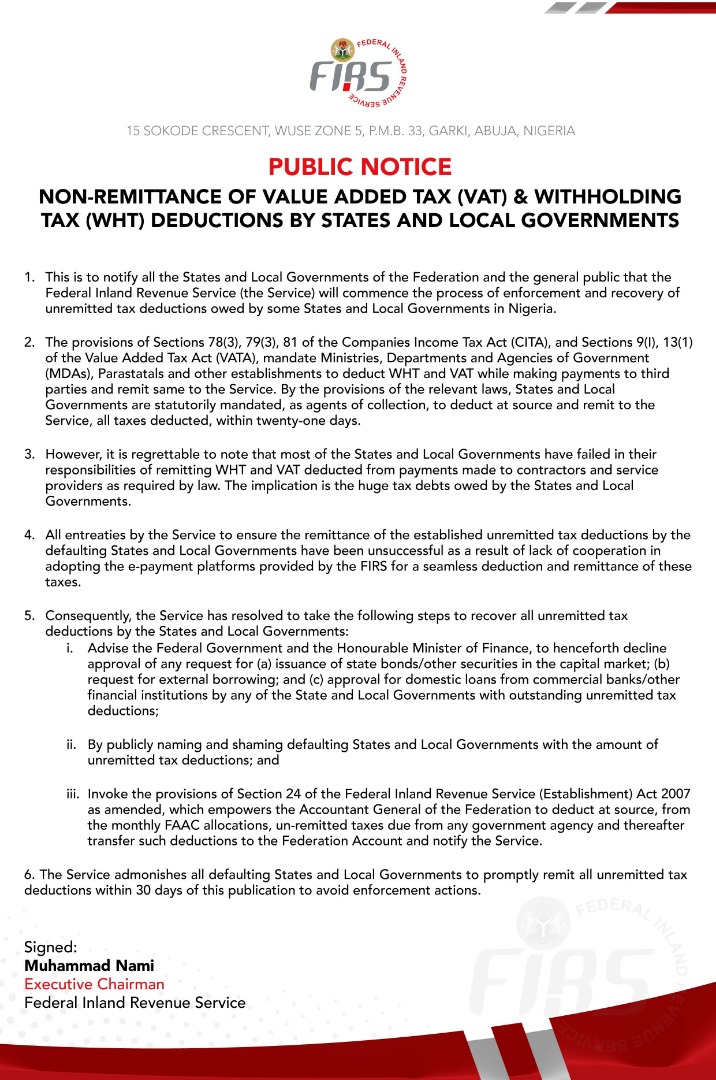– Situation to persist as CBN’s policy committee meets next week – WTS
At the backdrop of the surging inflation, financial market’s response has indicated that low income earners are now at the receiving end while high networth individuals (HNIs) and big corporate organizations are reaping the benefits in investment income.

Recall that the National Bureau of Statistics, NBS, this week’s figures on inflation shows 27.33 percent Year on Year (YoY) for the month of October 2023, the 10th consecutive monthly rise and also the highest inflation rate in 18 years.
The Central Bank of Nigeria, CBN, in response to the development since this year, had triggered off its inflation targeting monetary policy strategy which includes raising Monetary Policy Rate (MPR).
Consequently interest rates have been on steady rise in the money market while liquidity remained high also.
Vanguard findings however, revealed that the HNIs and highly liquid corporate organizations have been cashing-in on the development to invest huge resources in financial assets especially in fixed income market as well as equities, raking huge returns since this year.
Fixed deposit rates have gone up on record highs averaging at 15 percent in the third quarter of this year while many fixed income securities are trending at 17 percent.
These are coming at the backdrop of CBN’s high MPR rate which hit 18.75 percent in the third quarter with likelihood of further rise in the next Monetary Policy Committee, MPC, meeting scheduled for next week.
Also returns on equity investments as at third quarter is on record high of 35 percent, one of the best worldwide, a development which appears strange because a rising fixed income returns usually leads to a declining return in equities.
But the low income earners have been constrained by the rising inflation which sapped their purchasing power and hindered their ability to save or invest.
Vanguard findings also show that while the HNIs and big businesses get higher interest rate on their huge cash deposits they also get lowest interest rate on loans and almost unlimited access to credit.
But on the other hand, low income earners and small businesses get low interest rate on their little savings and in some cases the interest is wiped out into negative by bank charges.
Moreover, they have little or no access to loans and the ones that could have some loan considerations are burdened with lending rates far higher than the prime rate the HNIs and big businesses get.
Consequently, economists warn about looming danger of escalating poverty amidst huge financial returns in the economy, with the institutionalization of the poor getting poorer while the rich get richer syndrome.
However, analysts who spoke to Vanguard explained the situation, giving diverse reasons why the situation emerged and is likely to remain or even worsen in the near future.
Financial system is safer with the rich —Adonri
Reacting to the disparity in money market skewed against low income earners, David Adonri, Analyst and Vice Executive Chairman at Highcap Securities Limited said: “Intermediators in the financial services industry aim at maximization of income and minimization of costs or risks. Except in the capital market where commission charges are statutorily regulated, pricing of services in the money market are unregulated.
‘‘Usually, demand deposits (current and savings) are quite volatile and attract low interests but the rates on fixed deposits are much higher because of their longer maturity profile.
‘‘Fixed deposits give banks more profit as they can be used to create less risky assets by the banks. The higher rate on fixed deposit serves as incentive to depositors to move their funds there.
‘‘Risk and return underlies the charging of lower rate to prime depositors.’’
On the credit side, he maintained that the banks are safer with prime customers who are the HNIs and big corporate.
He stated: ‘‘The propensity for credits to prime customers to go delinquent is much lower compared to the higher risk inherent in MSME (Micro, Small and Medium Enterprises) lending.
‘‘To compensate for this higher risks, lenders charge additional risk premium.
“Interest rate and fees charged by Money Market intermediaries were deregulated several years ago. They are now market driven.”
Negotiating power is in favour of big customers — CEO, Wyoming Capital
In his own comment, Tajudeen Olayinka, analyst and CEO, Wyoming Capital & Partners Limited, said: “Some factors are responsible for the observed disparity in the treatment of big customers and small ones by banks, namely: Negotiating power of depositors often favour high networth individuals and institutional investors who have huge amount of money to deposit with the banks because they are able to key into the liquidity management strategies of the banks.
‘‘Tenor of fixed deposits in banks is much longer and reliable for asset and liability management and profitability.
‘‘Emergency liquidity support is possible with high networth individuals and institutional investors, as they bond easily to a desirous partnership arrangement with the banks.
‘‘Small savers and low volume current account holders can withdraw money without notice, thus, disrupting smooth operations of the banks’’.
On the disparity in lending rates, he stated: “Banks need to manage liquidity in a more profitable manner, and so, lend to their prime customers, using their respective prime lending rates.
‘‘Other customers, including MSMEs, receive credit facilities at Prime plus Risk-Weighted Rates. This is just natural. Prime customers are known to maintain steady and profitable cashflows.
‘‘Regulators can only use moral suasion where they perceive abnormal situation in bankers-customers relationship, otherwise, market should be allowed to determine interest rate and allocate resources in the most efficient manner. ‘‘Overregulation of interest rate can place enormous pressure on markets and put the economy in a state of disequilibrium.”
Inflation uptick, CBN strategy sustains yield uptick —Afrinvest
Dwelling heavily on how the recent rising inflation as well as returns on money market investments is in favour of big players in the financial markets, analysts at Afrinvest West Africa, a Lagos based investment house, stated:
‘‘For the fixed-income market, the average T-bills yield jumped 3.1percentage points (ppts) in October to 11.4% while FGN Bond’s average yield rose 94 bases points (bps) to 15.4%.
‘‘Looking ahead, we believe the expectation of continued inflation uptick in the near term and CBN’s renewed embracement of orthodox strategy could help sustain yield uptick in both the primary and secondary Fixed Income market segments while driving an improvement in foreign investment flows’’.
The situation will be sustained — WTS
Looking into the immediate future, analysts at WTI Financial Services, another Lagos based investment house, indicated that the imperative of counter-inflation policy would compel CBN to retain the interest rate environment.
They stated: ‘‘As per the scheduled calendar, the Monetary Policy Committee (MPC) is slated to convene next week, November 20th – 21st, 2023. ‘‘Considering the country’s negative real return due to the elevated inflation rate, we expect the committee to maintain its tightening stance.
‘‘The CBN started using Open Market Operations (OMO) as a liquidity management tool, a move that increased the stop rate to 17.98% (1-year), thereby narrowing the gap with the MPR (18.75%).
‘‘Furthermore, 364-day treasury bill rose to 16.75% (spot rate) in the last auction. The hikes in the fixed income market shows the monetary authorities wants to keep the Naira attractive to both local and foreign investors (FPI).
‘‘What does higher interest mean for the Equities market?
‘‘The equities market might experience bearish trend due to higher opportunity costs in the fixed income market. The implication of higher interest rates for equities is the reallocation of funds by investors to capture higher yields.’’
– Vanguard






























